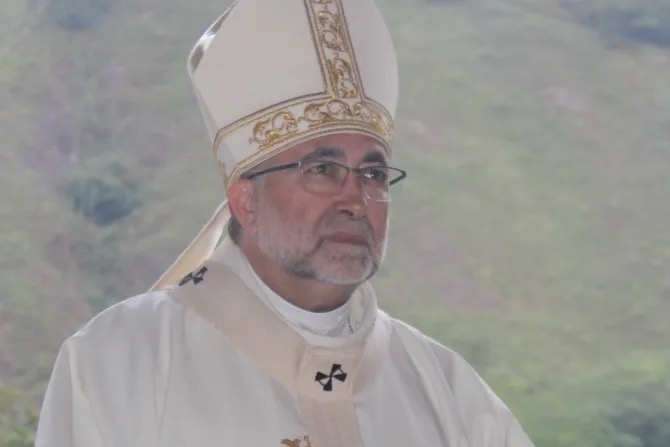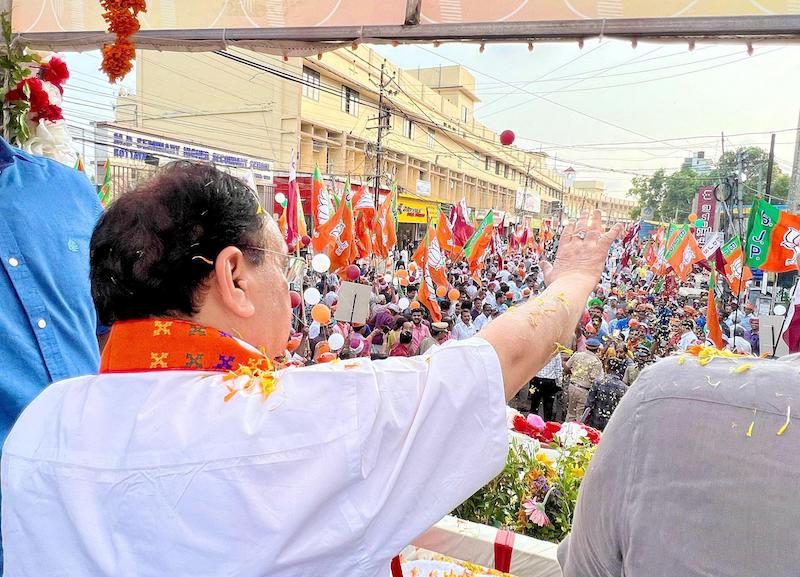Church leaders in India have faced charges of politicisation amid the campaign for Christian votes in general election.
Prime Minister Narendra Modi has visited the small southern state of Kerala five times this year as his Bharatiya Janata Party (BJP) pursues a third general election victory.
In April he suggested that he and Pope Francis had discussed a papal visit to India next year, as he insisted that in an interview the party would take “all communities, including Christians, on board”.
The Hindu-nationalist BJP has been historically weak in southern India, especially in Kerala where it has never won a seat, even in the consecutive election victories in 2014 and 2019 for the National Democratic Alliance coalition the party leads.
The National Democratic Alliance won 15.64 per cent of votes in the 2019 election, an increase of 2.78 per cent on the 2014 poll. It won 14.96 per cent of votes in the 2016 assembly elections, but that fell to 11.03 per cent in 2021 when it lost its sole seat.
BJP politicians including Modi have appealed to Christian voters in the state, with a large number of rallies and public visits to bishops and other Church leaders.
By tradition, Kerala is where St Thomas the Apostle began his mission to India in 52AD, and 22 per cent of India’s Christian population lives there, divided between Catholic and Orthodox Churches as well as Protestant denominations.
It is known as “God’s own country” for the relative harmony between its Hindu, Muslim and Christian populations. In a 2011 census, they respectively made up 54.73 per cent, 26.6 per cent and 18.4 per cent of its population.
Some local BJP leaders joined the Palm Sunday processions this year, while on Good Friday the party’s vice president for Kerala A.N. Radhakrishnan attempted to carry a cross to the top of Malayattoor Hill near Angamaly as part of a Syro-Malabar pilgrimage.
From 21 December to 31 January party leaders conducted its Sneha Yatra (“Love Journey”) outreach programme to appeal to Christian leaders. K. Surendran, its president in Kerala, met the former major archbishop of the Syro-Malabar Church, Cardinal George Allencherry.
“We are carrying Prime Minister Modi’s Christmas and New Year messages to churches, headquarters of various denominations and all Christian homes in Kerala,” Surendran said.
Suresh Gopi, a popular actor who is standing for the BJP in the city of Thrissur, placed a golden crown on the head of a Marian statue in the city’s Cathedral of Our Lady of Lourdes during a ceremony.
Christian votes have been deemed key to results in several Kerala constituencies. Despite its Hindu-nationalist position, the BJP has enjoyed success in other historic Christian centres such as western Goa.
V.D. Satheesan, leader of the opposition Indian National Congress in Kerala’s legislative assembly, has dismissed the BJP’s efforts as a “gimmick”. He said bishops were not endorsing the party by receiving its leaders, because they could not practically refuse visits from the party of government.
Christians have in the past been wary of the BJP’s polarising policies, and typically voted for the Congress in parliamentary elections while supporting either the Left Democratic Front – led by the Communist Party of India-Marxist and Communist Party of India – or the Congress-led United Democratic Front in assembly elections.
However, the party’s prospects improved last year when Anil K. Antony, son of the veteran Christian politician A.K. Antony, joined the BJP to contest the Pathanamthitta constituency this year.
Modi has also pursued Christian votes outside Kerala, with public gestures such as a Christmas party at his New Delhi residence attended by most senior bishops and heads of Churches. The attendees were criticised in some corners for not refusing the invitation in protest at the persecution of Christians in India.
“On one hand they decry the anti-Christian policies of the federal government, but on other, they try to appease the rulers,” said the human rights activist John Dayal.
Outside of Kerala, Hindu nationalist groups have continued to target the Church. The BJP-aligned Legal Rights Protection Forum accused Archbishop George Anthonysamy of Madras-Maylapore, in Tamil Nadu state, of breaking electoral law by mentioning the suffering of religious minorities in an editorial.
The forum said this was an attempt “to influence voters on religious lines”, but the archbishop insisted he had appealed “to people to vote as citizens”, not for any particular party.
The political analyst George Gonsalves, based in the Kerala city of Kochi, said that some Church leaders were “gravitating” towards the BJP due to their “vested interests”.
The federal government’s Foreign Contribution Regulation Act has blocked foreign funds for many charitable and religious organisations, leaving Church authorities short of funds and dependant on government patronage. Some bishops are implicated in legal action over the misappropriation of property and clergy sexual transgressions.
Gonsalves said that two bishops were prepared to support the BJP to gain a seat from Kerala if the federal government doubled the procurement price of rubber, to their financial benefit.
The screening in one diocese of the controversial film Kerala Story, which promotes the “love jihad” conspiracy theory and was dubbed “BJP propaganda”, suggested support for the BHP’s anti-Muslim rhetoric.
However, the Kerala Catholic Bishops’ Council has denied aligning with any party. Gonsalves said Christian support for the BJP was weakened by its conduct in Manipur, where a BJP-led government has failed to stop ethnic violence that has badly affected tribal Christians. He also said that Christian voters were conscious that the party’s anti-Muslim rhetoric could be turned against them.
In a campaign speech last month, Modi equated the Muslim community with “infiltrators” and described them as “those who have more children”. He promoted a conspiracy theory about Muslims stealing Hindu wealth.
Nearly 20,000 citizens wrote to the Election Commission of India demanding that it sanction Modi. Congress called for it to disqualify Modi’s candidature and bar him from campaigning.
Modi was unrepentant. “I presented the truth before the nation that the Congress has hatched a deep conspiracy to snatch your property and distribute it among their special favourites,” he said.
Commentators suggested that his inflammatory statement was a response to low turnout in early polling in the BJP’s heartlands.



 Loading ...
Loading ...